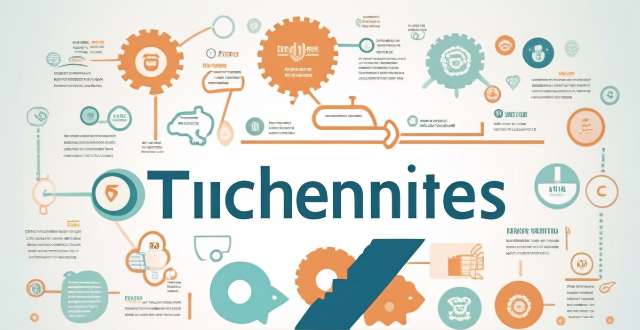Stage Mortgage

How long does it take to get approved for a mortgage ?
Getting approved for a mortgage is an essential step in the home buying process. The time it takes to get approved can vary depending on several factors, including your financial situation, the type of loan you are applying for, and the lender you choose. In this article, we will discuss the different stages of the mortgage approval process and provide an estimate of how long each stage typically takes. ## Stage 1: Pre-approval Pre-approval is the initial step in the mortgage approval process. During this stage, you will need to submit various documents to your lender, such as pay stubs, tax returns, and bank statements. Your lender will then review your financial information to determine if you qualify for a mortgage and what size loan you can afford. This stage typically takes around 1-3 business days. ### Documents needed for pre-approval: - Pay stubs from the past two months - W2 forms or tax returns from the past two years - Bank statements from the past two months - Credit report ## Stage 2: Underwriting Once you have been pre-approved, your lender will begin the underwriting process. During this stage, your lender will verify the information you provided during pre-approval and ensure that you meet all of their lending requirements. This stage typically takes around 5-7 business days. ### Tasks performed during underwriting: - Verifying employment and income - Checking credit history and scores - Evaluating assets and liabilities - Assessing property value and condition ## Stage 3: Closing If your lender approves your loan application, you will move on to the closing stage. During this stage, you will sign all of the necessary paperwork to finalize your loan. This stage typically takes around 3-5 business days. ### Tasks performed during closing: - Reviewing final loan documents - Signing loan agreements and disclosures - Paying closing costs and fees - Receiving keys to your new home ## Estimated Timeline for Mortgage Approval In summary, the estimated timeline for getting approved for a mortgage is as follows: 1. Pre-approval: 1-3 business days 2. Underwriting: 5-7 business days 3. Closing: 3-5 business days Overall, it typically takes around 9-15 business days to get approved for a mortgage. However, keep in mind that this timeline can vary depending on factors such as your financial situation, the lender you choose, and any potential delays or issues that may arise during the process.

How does a home equity loan work in relation to my mortgage ?
A home equity loan allows homeowners to borrow against the equity in their property, serving as a second mortgage without requiring refinancing. It offers advantages such as lower interest rates and potential tax deductions but also presents risks like foreclosure and additional debt. Understanding how it works in relation to your primary mortgage is crucial for making an informed financial decision.

Can I pay off my mortgage early without penalty ?
Paying off a mortgage early can save homeowners significant interest, but it's crucial to understand potential prepayment penalties. Mortgages often include clauses that either allow for penalty-free prepayments or impose fees for early payoffs. Homeowners should review their loan agreements, contact lenders for clarification, and assess the financial implications before deciding to pay off their mortgage early. Alternative strategies like refinancing or making smaller extra payments within allowed limits can also be considered to avoid penalties and achieve financial goals.

How does a co-signer affect my mortgage application ?
A co-signer is a person who signs a loan application along with the primary borrower. The co-signer agrees to take on the responsibility of repaying the loan if the primary borrower fails to do so. In this article, we will discuss how a co-signer affects your mortgage application. The credit score of both the primary borrower and the co-signer plays a significant role in determining the eligibility for a mortgage loan. A co-signer with a good credit score can improve the chances of getting approved for a mortgage loan. However, if the co-signer has a poor credit score, it may negatively impact the loan approval process. The income and debt-to-income ratio (DTI) of both the primary borrower and the co-signer are also important factors that lenders consider when evaluating a mortgage application. If the co-signer has a high income and low DTI, it can help strengthen the application and increase the chances of approval. On the other hand, if the co-signer has a low income or high DTI, it may negatively impact the loan approval process. Lenders also consider the employment history of both the primary borrower and the co-signer when evaluating a mortgage application. A stable employment history can demonstrate financial stability and reliability, which can positively impact the loan approval process. If the co-signer has a stable employment history, it can help strengthen the application and increase the chances of approval. The assets and liabilities of both the primary borrower and the co-signer are also taken into consideration by lenders when evaluating a mortgage application. If the co-signer has significant assets and few liabilities, it can help strengthen the application and increase the chances of approval. However, if the co-signer has significant liabilities or limited assets, it may negatively impact the loan approval process. In conclusion, a co-signer can have a significant impact on your mortgage application. Their credit score, income and DTI, employment history, assets, and liabilities are all factors that lenders consider when evaluating a mortgage application. It is important to choose a co-signer who has a good credit score, stable employment history, and low DTI to increase the chances of getting approved for a mortgage loan.

What are the tax benefits of owning a home with a mortgage ?
The tax benefits of owning a home with a mortgage include the ability to deduct mortgage interest, property taxes, and private mortgage insurance premiums. Homeowners may also deduct interest on home equity loans if used for improvements and qualify for energy efficiency tax credits. Additionally, selling a primary residence allows for a capital gains exclusion, and working from home can provide a home office deduction. These benefits are subject to conditions and limitations; consulting a tax professional is recommended to understand their application to individual circumstances.

What is the difference between a fixed-rate and adjustable-rate mortgage ?
The text discusses the differences between a fixed-rate and adjustable-rate mortgage. A fixed-rate mortgage has a constant interest rate throughout the loan term, offering stability and predictability in monthly payments. An adjustable-rate mortgage (ARM) has a fluctuating interest rate based on market conditions, with potential savings if rates decrease but also the risk of higher payments if rates increase. The choice between the two depends on personal financial situation, risk tolerance, and long-term goals.

What is private mortgage insurance (PMI) and do I need it ?
Private Mortgage Insurance (PMI) is a type of insurance that protects the lender, not the borrower, in case of default on a mortgage loan. It is typically required when a homebuyer makes a down payment of less than 20% of the home's purchase price. Whether you need PMI depends on factors such as your down payment, credit score, loan-to-value ratio, and type of loan. Consider the cost of PMI and alternatives before deciding to obtain it.

What are the current mortgage rates for first-time homebuyers ?
The text discusses the current mortgage rates for first-time homebuyers, detailing the various types of loans available, such as Federal Housing Administration (FHA) Loans, Conventional Loans, and Adjustable-Rate Mortgages (ARMs), and providing key points for each type. It also offers tips for first-time homebuyers to consider when looking at mortgage rates, including improving credit scores, saving for a down payment, comparing lenders, considering all costs, and consulting a professional. The text emphasizes the importance of shopping around and comparing offers from multiple lenders to find the best rates and terms for individual financial situations.

What are the common challenges faced by teenagers during their developmental stage ?
The text discusses the common challenges faced by teenagers during their developmental stage, including physical changes such as body image issues and puberty, emotional changes such as mood swings and stress and anxiety, social changes such as peer pressure and bullying, academic pressure such as high expectations and time management, and identity development such as self-discovery and future planning. These challenges can have a significant impact on a teenager's overall development and well-being, and it is essential for parents, teachers, and caregivers to provide support and guidance during this critical stage of growth.

How much down payment do I need to buy a house ?
This article discusses the factors affecting the down payment amount for buying a house, including credit score, type of mortgage, and price of the house. It also provides common down payment requirements for different types of mortgages and tips for saving for a down payment.

Can I get a mortgage with bad credit ?
Getting a mortgage with bad credit is possible but may be more challenging and come with less favorable loan terms. To increase your chances, check your credit score, work on improving it, shop around for lenders, consider alternative options like FHA or VA loans, and be prepared to make a larger down payment.

How do I qualify for a mortgage loan ?
This article provides a detailed guide on how to qualify for a mortgage loan, highlighting key factors that lenders consider such as income, credit score, debt-to-income ratio, employment history, and assets and liabilities. It also outlines steps to take in order to increase chances of success including checking your credit score, calculating your DTI, gathering financial documents, shopping around for lenders, getting pre-approved for a loan, finding a home within budget range, making an offer, and completing the closing process.

What happens if I miss a mortgage payment ?
Missing a mortgage payment can lead to immediate financial penalties, negatively impact your creditworthiness, and put your home at risk in the long term. It's essential to communicate with your lender early and explore all possible options to mitigate the consequences before they spiral out of control.

What is the process of applying for a mortgage ?
The process of applying for a mortgage involves several steps, including determining your budget, checking your credit score, shopping for lenders and loan programs, gathering necessary documents, submitting your application, underwriting and approval, and closing the deal. It's important to carefully review all paperwork and pay closing costs before officially becoming a homeowner.

Can I refinance my mortgage to get a lower interest rate ?
Refinancing a mortgage can lead to lower interest rates and monthly savings, but involves costs like closing fees. Eligibility depends on credit score, equity, and DTI ratio. Consider market conditions and break-even point before deciding. The process includes researching, applying, providing documentation, appraisal, underwriting, closing, and funding. Alternatives include recasting, loan modification, and government programs.

What are the closing costs associated with a mortgage ?
Closing costs are fees and expenses associated with finalizing a real estate transaction. These costs vary based on location, property type, and lender requirements. Common closing costs for buyers include loan origination fees, appraisal fees, credit report fees, title search and insurance fees, attorney fees, recording fees, prepaid interest, homeowner's insurance premium, property taxes, and other miscellaneous fees. It is important to budget for these expenses in advance and review all closing documents carefully to avoid any financial surprises during the home-buying process.

What is a speed controller and how does it work ?
Speed controllers regulate the speed of electric motors and are used in various applications requiring precise speed control, such as industrial machinery. They consist of an input stage for power supply, a control stage using PID controllers to adjust voltage based on motor speed feedback, and an output stage that converts adjusted voltage for motor use.

How do national sports teams represent their country's image on the international stage ?
National sports teams play a crucial role in representing their country's image on the international stage. They are seen as ambassadors of their nation, showcasing values, culture, and spirit through their performances and behavior. Athletes inspire national pride and promote cultural exchange, uphold ethical standards, and embody national spirit. Successful performances enhance prestige, while handling setbacks with grace demonstrates resilience. Supporting national sports teams fosters national identity and pride globally.

How long does it typically take to secure funding from a venture capital firm ?
Securing funding from a venture capital firm involves several stages, including preparation, initial meetings and screening, negotiation and terms sheets, and closing and funding. The timeframe for each stage can vary depending on factors such as the industry, company growth stage, VC firm investment criteria, and market conditions. The preparation phase involves researching and identifying suitable VC firms, preparing pitch materials, and networking and outreach. The initial meetings and screening stage includes first meetings with VC firms and due diligence and screening. The negotiation and terms sheets phase involves investment terms negotiation and signing the terms sheet. Finally, the closing and funding stage includes legal and financial due diligence and receiving funding and post-investment support.

How long does it take to complete a network expansion project ?
Completing a network expansion project involves several stages, including planning and design, procurement, installation and configuration, testing and troubleshooting, and deployment and training. The duration of each stage can vary depending on factors such as project size, resource availability, and team efficiency. A general timeline for completing a network expansion project is 6 months to a year.

Is there a specific age or stage in an athlete's life where they are most likely to reach peak performance ?
Athletes tend to reach their peak performance during their late teens to early twenties due to physical maturity, mental maturity, training and experience, and lifestyle factors. Physical maturity includes muscle development, cardiovascular fitness, and speed and agility improvements. Mental maturity involves focus and concentration, decision-making skills, and mental toughness. Training and experience lead to skill development, tactical understanding, and adaptability. Lifestyle factors such as nutrition, rest and recovery, and educational commitments also play a role in an athlete's potential for reaching peak performance.

What is the correlation between housing market indicators and the overall economy ?
The housing market is a significant indicator of the overall health of an economy, intertwined with employment, consumer spending, and financial markets. Housing starts and permits signal economic growth; existing home sales reflect consumer confidence; home price indexes affect household wealth and consumer spending; mortgage rates influence home purchases; inventory levels indicate market strength or challenges; builder confidence suggests future construction trends; foreclosure rates reveal economic distress; and rental market trends show limited purchasing options. These indicators provide insight into different facets of the economy, painting a comprehensive picture of the housing market's health and its relationship with the overall economic condition.

What is the cost involved in expanding a network ?
Expanding a network involves costs in hardware, software, labor and other areas.

What are some common tax planning strategies for individuals ?
Tax planning is crucial for individuals to minimize taxes and maximize savings. Common strategies include maximizing retirement account contributions, utilizing tax credits/deductions, harvesting capital losses, investing tax-efficiently, timing income/expenses strategically, and using education tax benefits. Regular attention and adjustment to these strategies are necessary for effective tax management.

What are the different types of bonds available for investment ?
This text discusses the different types of bonds available for investment. It explains the characteristics and subtypes of corporate, municipal, government, mortgage-backed securities, asset-backed securities, zero-coupon, floating rate, inflation-protected, perpetual, international, taxable vs. tax-exempt, secured vs. unsecured, callable vs. non-callable, registered vs. bearer, fixed rate vs. floating rate, strip, synthetic, private placement, structured, green, and supranational bonds.

How can I effectively plan my finances for wealth growth ?
Effective Financial Planning for Wealth Growth Financial planning is crucial for achieving long-term financial goals. This guide discusses strategies for planning finances to grow wealth. It includes setting clear financial goals, creating a budget and sticking to it, building an emergency fund, investing wisely, minimizing debt and paying it off strategically, and reviewing and adjusting the plan regularly. By following these strategies, you can take control of your finances and work toward growing your wealth over time.

How many teams participate in the UEFA Champions League ?
The UEFA Champions League is an annual football competition organized by the Union of European Football Associations (UEFA). It features the top-division European clubs competing against each other for the prestigious title. The number of teams that participate in the UEFA Champions League can vary depending on several factors such as performance in previous seasons and qualification rounds. Before the actual group stage of the UEFA Champions League begins, there are several qualification rounds where teams from lower-ranked associations compete for a spot in the main tournament. These qualification rounds usually take place over the summer months before the start of the new season. Typically, around 32 teams qualify for the group stage of the UEFA Champions League each year. This number was increased from 16 teams when the current format was introduced in 1999. In summary, the UEFA Champions League is a highly competitive and prestigious football tournament that features some of the best clubs from across Europe. The tournament consists of several qualification rounds followed by the main tournament, which includes both the group stage and knockout phase.

What is the difference between angel investors and venture capitalists ?
The main differences between angel investors and venture capitalists are: - Investment Amount: Angel investors typically invest smaller amounts of money, while venture capitalists invest larger sums. - Investment Stage: Angel investors tend to invest in early-stage companies, while venture capitalists invest in later-stage companies that are further along in their development. - Risk Tolerance: Angel investors are generally willing to take on higher levels of risk than venture capitalists. - Involvement Level: Angel investors tend to be more hands-on and involved in the companies they invest in, while venture capitalists typically have less direct involvement.